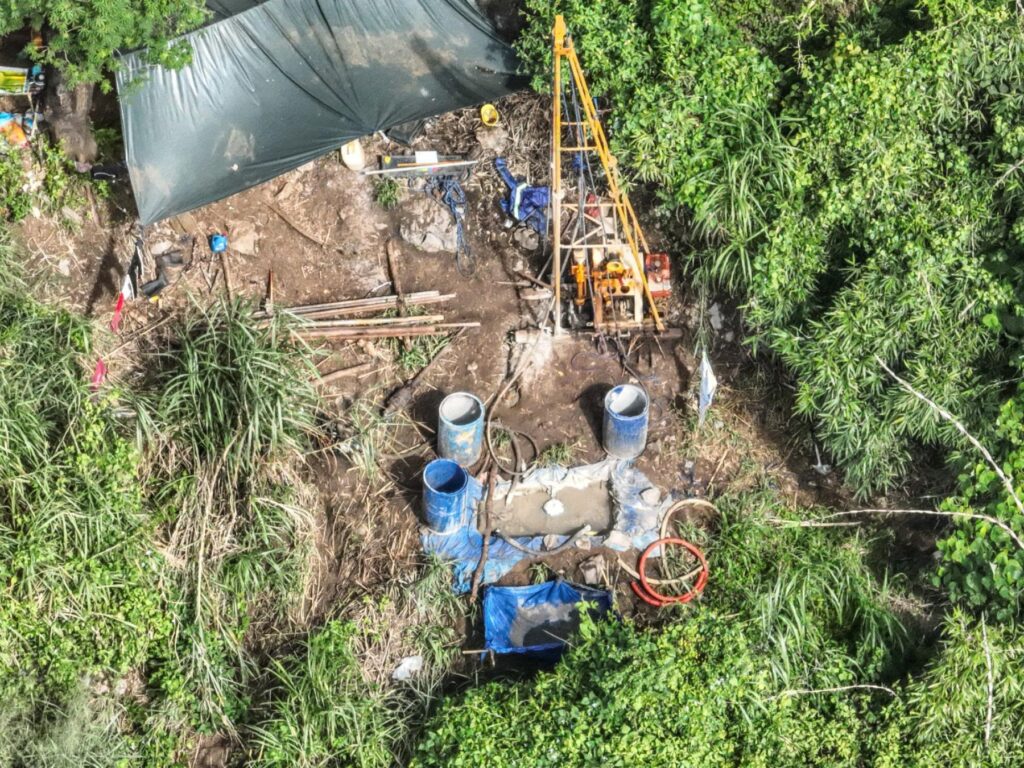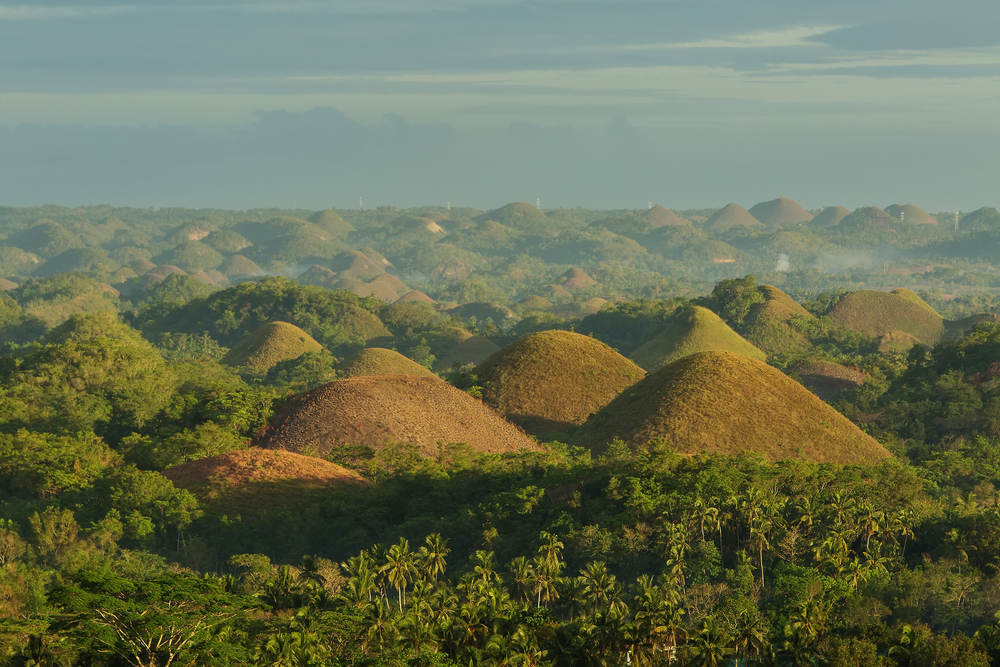The Philippines is blessed with so much beauty. From the wild, rolling hills of Batanes to the azure waters of Sulu, our nature is our treasure.
Caring for our natural wonders though is another thing altogether, as we Filipinos still seem to be eons away from knowing how to be responsible stewards of the environment.
A few days ago, for instance, netizens woke up to a surprising image: a colorful resort nestled among Bohol’s famed Chocolate Hills.
An anomaly against nature’s majesty
No, it’s not AI generated. The resort, in fact, sits quite comfortably in the country’s first Unesco Geopark. An anomaly against the majesty of Mother Nature.
This is not the first time Captain’s Peak Garden and Resort in Sagbayan and Bud Agta in Carmen has caught the public’s attention. On September 21, 2023 the Philippine Daily Inquirer already ran a story about it.
In the report written by Leo Utdohan and published on Inquirer.net, a Bohol Provincial board member, Jamie Aumenado Villamor, urged the Department of Environment and Natural Resources (DENR) to stop the construction of structures within the vicinity of the Chocolate Hills.
Villamor, a lawyer and the chair of the provincial board committee on environment, said there should be “no room for ambiguity” in the guidelines set by DENR’s Protected Area Management Board (PAMB).
Bohol is one of the country’s main tourist draws, and the majestic Chocolate Hills its undisputed main attraction. With as many as 1,776 hills spread over an area of more than 50 square kilometers that spans six towns, it is truly a national treasure.
Why was it allowed?
But how come a resort, in all its concrete and plastic glory, was allowed to be built in a place deemed a national treasure?
In the same article, Captain’s Peak Garden and Resort was described as “controversial” due to the construction of structures that were too close to the hills.
Bohol’s Chocolate Hills is classified as a natural monument, hence protected under Republic Act 7586, or an Act Providing for the Establishment and Management of Natural Integrated Protected Areas System (NIPAS).
Section 20.g of the law prohibits the constructing or maintaining any kind of structure, fence or enclosures.
But apparently, under the guidelines of Resolution No. 5, Series 2012, which guides the ecotourism development and management of the Chocolate Hills, private property owners near it are allowed to develop their land.



This is why Villamor urged the DENR-PAMB, to “address the ambiguity of the rules and guidelines in the development and management of our protected areas to ensure long-term protection and conservation,” as stated in the article on the Inquirer.
Gov. Aris Aumentado ordered an investigation into the defacement of the Chocolate Hills due to illegal structures. “All these Chocolate Hills must be accounted for. We can’t afford to lose [even] one,” he said.
On this, Villamor, a lawyer and the chair of the provincial board committee on environment, could only say: “My hope is for leaders, different government agencies, and all stakeholders to work on policies that truly preserve and conserve our natural heritage, especially so that this is a protected area under the National Integrated Protected Areas System Act of 1992.”
In the wake of the backlash on social media, the Department of Environment and Natural Resources (DENR) in a statement sent to Rappler, Wednesday, March 13, said it issued a Notice of Violation to the resort on January 22, 2024 for operating without an Environmental Compliance Certificate (ECC).
A Temporary Closure Order issued against Captain’s Peak Resort on September 6, 2023.
Julieta Sablas, resort administrator, told Rappler on Wednesday they already received the TCO and have appealed for reconsideration.
According to the same article on Rappler, the resort is still operating as of writing.
Mayhem in Masungi
Sadly, it’s not just Bohol that’s facing the same problem.
According to a report by Keith Anthony S. Fabro on Mongabay, an American conservation news web portal, conservationists are alarmed over the “surprise discovery” that a Singapore-based company has started construction of a wind farm inside the Masungi Georeserve.
The Masungi Karst Conservation Area (MKCA) has been declared a strict nature reserve and wildlife sanctuary since 1993. It is home to more than 400 wildlife species, some of which are considered rare.
However, drone images from late 2023 captured by the Masungi Georeserve Foundation, Inc. (MGFI), the nonprofit organization that manages the site, showed drilling activities to build 12 wind turbines as part of a renewable energy project.



Rizal Wind Energy Corp. (RWEC), owned by Singapore-based energy developer Vena Energy, is behind the construction.
In an online signature campaign against the wind farm construction, the group said this “misguided energy development” is the latest threat to Masungi.
It has been well reported that Masungi is in constant threat of illegal logging and quarrying, and even its forest rangers have been victims of violence.
Unfortunately, despite Masungi being declared a protected landscape in 2011 couldn’t prevent these threats.
In an article on Business World by John Eiron R. Francisco, Masungi Georeserve Foundation cofounder and conservationist Billie Dumaliang said that, “even studies for a wind farm should not have commenced in the first place,” citing DENR Administrative Order 1993-33.
In response, also in the same article on Mongabay, Vena Energy said that it has secured Philippine government permits, including an environmental compliance certificate, protected area management board clearances, and a certificate precondition, following an environmental impact assessment study and consultations with Indigenous peoples.
It also assured the public that it continues to maintain open dialogue with stakeholders and is always willing to work with concerned parties to achieve the common good, according to Angela Tan, the company’s corporate communications chief, in an emailed statement to Mongabay.
Dumaliang questioned the company’s claim to being sustainable, “Why Masungi? That’s not responsible site selection. So, that’s what I have said to the company. You can’t say that you’re a sustainable company, responsible company, if you’re choosing to build in a location that isn’t appropriate.”
She found allies in the Senate. In November 2023, during a Senate hearing on the “study” on the construction of windmill farms in Masungi, Sen. Raffy Tulfo cited Proclamation 1636 series of 1977 which declared Masungi Georeserve as a wildlife sanctuary.



He also noted DENR AO 33 dated May 10, 1993, which stated that Masungi was declared a strict nature reserve and wildlife sanctuary, with no subsequent administrative orders superseding the said declaration.
Still, it seems that the project is pushing through, with Dumaliang sharing to Business World that company executives told them “they were already in the advanced pre-development stage.”
For now, it’s still unclear what will happen to Captain’s Peak Garden and Resort in Bohol or the windmill development in Masungi.
There’s nothing wrong with development but it should not come at the expense of nature and culture. Let’s hope it’s not yet too late for Bohol or Masungi and for all the other places in the country and in the world that are at risk because of “development.”








